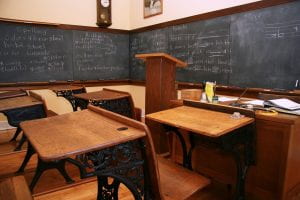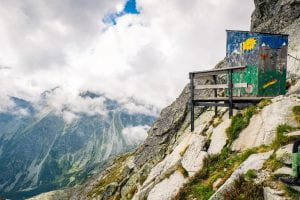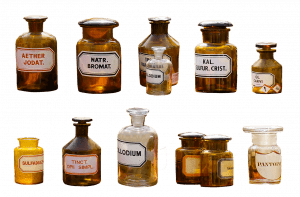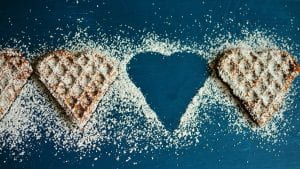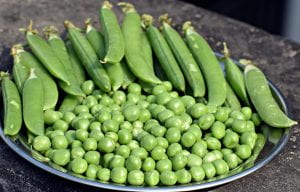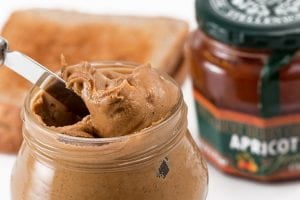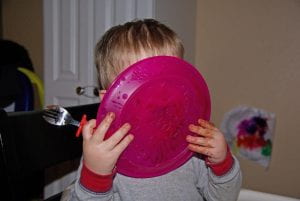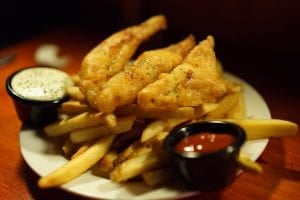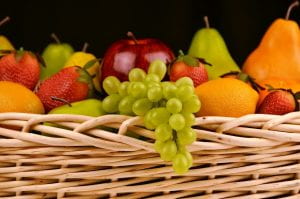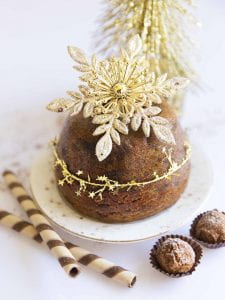Remembering that stories are important in family history, not just the birth, death, marriage dates and places. So how do we find information to fill in the gaps in the stories was what was discussed at this #ANZAncestryTime chat.
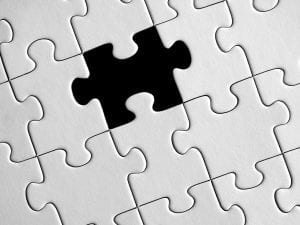
How do we identify gaps in our research? Is it important to do so?
I use timelines to work out where I need to look for more info eg school records, employment records etc
If you use good desktop software it may have a way to let you know what is missing
I am currently redoing my database and have queries to help find what is missing.
I have two ways of identifying gaps: (1) is writing up my research which makes clear where I’m missing information. (2) checking against my preferred sources to ensure I’ve included them.
To find gaps in knowledge/evidence about an individual … start writing up what you know about them as a sourced biographical narrative. This soon highlights the gaps which you can then set about trying to fill
Starting with what you know is a great tip Jane @Chapja It’s much easier then to see the gaps
Yes, Jane, I can get on board with this method, because my goal is a story, not a full database.
I like to try to fill in the gaps in my research. Often when traditional family history records leave gaps you can fill them using newspapers. DNA has helped me also
Love me a good timeline! Plus checklists, making sure I’ve covered at least all the basics.
For brickwalls I use mindmaps (from FreeMind) to review and identify what I might have missed
I love creating mind maps. I picked up that tip at Rootstech a few years ago. It’s amazing what can jump out at you as missing
Mindmapping – you could do this with pencil and paper I’ve also used Freemind Mindmaps for preparing museum exhibitions What’s really nice is that you can collapse sections or open then up
Using a research log or prompt sheet can help to identify gaps
A1: I use spreadsheets to work out gaps in my research. I try to limit my sheets to things I plan to research and basic vital records. It is important so that we do not waste time and use our time more productively. #ANZAncestryTime pic.twitter.com/Lb00jNaW2V
— fran kitto (@travelgenee) August 24, 2021
To visualise gaps in tree … the DNAPainter ‘Ancestral Trees’ function enables you to visualise tree completeness so you can decide where in your tree you may want to focus next – dnapainter.com/#trees
I create detailed timelines for individuals and families – it’s a great way of spotting both gaps and connections I hadn’t noticed before. Creating bios for Wikitree also made me go back and look for things I’d missed, so I could tell a coherent story
As Australia doesn’t have its census records available, we have to utilise different record sets and not get caught in the decennial gap trap.
Identifying gaps in our research is important if we’re to gain a full view of the lives of our ancestors. Learning what records are available for place and time, and using them, is critical.
I find using a spreadsheet to set down timelines of each person useful. Columns represent list of possible records they would be in, when I locate I tick it in the column. Records BMD parish records and census.
As with so much in family history, it’s finding what is most intuitive for each of us that helps productivity.
When looking at gaps in our research we need to look at regional, national and world events to see how they affected our families.
Ancestry’s DNA match colour coding and DNA Painter’s chromosome mapping have filled gaps for me
When new records become available work through them to ensure you have not missed someone GRO site helped me
I use timelines. I include place as well as dates. For example, is it possible that my research people were in e.g. New York for 1910 census and then enumerated in England a few months later in 1911? (Yes, it is, but confirming it opened new avenues)
Yeah Sophie’s “negative space” is basically the same idea, although her approach is more colourful. I’d like to be able to do a 3-D version that layers people on top of time/place. Best I can do for that is Visio/process maps
Visio is a lovely little microsoft package – very easy to use. I also use it for presenting smaller family trees – extracts
A1. I have specific research questions I want to answer for each ancestor. I organised them into levels and keep track of where I am using DNAPainter. #ANZAncestryTime https://t.co/KELuIrxNOP pic.twitter.com/jESauK9kVO
— Yvette Hoitink 🇳🇱 (@yhoitink) August 24, 2021
It was inspiration from the talk given by @ScientistSoph on Negative Space that really started me thinking more about this topic, including mapping events. Read her blog post here. parchmentrustler.com/family-history…
timelines are really helpful, as is writing up a person’s life. Often realise I’m missing something crucial.
Interesting how many of us find narratives helpful to identify missing research.
I tag my Legacy trees as I find supporting sources so I know which ones I need to find.
i do a timeline sheet in my Research Log (Excel). I add date in first column then age, event and place for each person in the family with a diff colour for each person. Then i can scroll and see where each family member was on a date.
Different formats for diff research questions, but usually just a table in a Word document – year in one column, date in next, then a text field with whatever info I want to record. I find that little bit of visual organisation just enough to work for me
Ancestry’s DNA match colour coding and DNA Painter’s chromosome mapping have filled gaps for me
Yes … Delay no further! DNAPainter has so many useful tools and functions to help find and fill gaps in our research
I have loved DNA painter since Jonny Perl first introduced it at a RootsTech conference. He is brilliant
something I do with my students often is get them to fill out a blank direct ancestor tree just to see where they’re missing bits.

Do you use a timeline to identify research gaps? Do you use your genealogy program, Excel or another program?
I use mainly Legacy but sometimes go with spread sheet
Funny you mention it, because I created one today about a great grandfather, using a table in WORD. I’m including citations from the many sources I have found about him. He never seemed to stay in one place for long – trying to put all the pieces together.
Those wanderers can be a lot of work to trace. I have a few of those. Timelines do help to see where they’ve been
I have a bigamist who disappears after he serves time in Victoria. Not found anywhere yet.
I suspect some bigamy with my American born Adams 2xgt gddad too. Disappears from Grafton & NSW. Then emerged close & shared DNA matches descended from Tassie man of same name who appeared in Tassie little after Grafton man disappeared. Same man or close family?
Example of spreadsheet to show gaps as promised. Some columns may change if moved overseas. yes means I found the record or certificate and have recorded it in my family tree program. Down the side list of family members. #ANZAncestryTime pic.twitter.com/ufWAuWZIrd
— Debs the explorer 💙 (@DebChall) August 24, 2021
I find that now I am writing up the family histories (part of my downsizing project) I am finding gaps and then I just fill them as I go. If I can
Yes writing narratives is a great way to find gaps in information … it also helps to spot inconsistencies in the information you have too
I can be in the middle of a blog post about an ancestor and realise I have a gap. Then it’s off down a rabbit hole before I finish the blog post. That’s where I am now
Writing is the best way to spot gaps! Writing seems to trigger all sorts of analytical processes in your brain that regular research does not.
Yes, and why it takes me so long to finish a blog post, let alone a research report for myself (loved your presentation on that!)
I found an infant death in Ireland following naming patterns and a gap in the births.
Tracing 19th century Aussie wanderers, it’s helpful to put the gold rushes on the timeline. A ‘missing’ person may have gone to try their luck. Check other colonies.
Good tip Brooke to add to the timeline. Also perhaps expansion of an occupation eg railway construction?
Gold rushes impacted just about everybody’s family – follow the gold. One of mine moved from Sydney to Victorian goldfields then up to the Gympie rushes in Queensland and finally over to the Western Australian gold rush. Over generations and not all moved.
Yes, my West Coast NZ gold rush ancestors all started mining life in Victoria. Most of them left family there, though contact has been mostly lost. I hope to re-establish some one day!
Another one of my mining families ducked across to Reefton for a while then back to Queensland. Have to look both sides of the Tasman
I realised one of mine did when I mapped the births of all his (many) children. Another way of spotting gaps. Map the babies.
A2. I create mine in Word or Excel, depending on the amount of data manipulation I want to do. Here’s one for ggrandma with her residences (green), events (blue = birth of son, grey = death of child), and her family’s events. #ANZAncestryTime pic.twitter.com/WxrUDuBke9
— Yvette Hoitink 🇳🇱 (@yhoitink) August 24, 2021
This timeline was created for a specific research question: where was she living when she got pregnant with her children who were born out of wedlock? The timeline helped me formulate a hypothesis about the probable father, later confirmed with DNA.
My genealogy program allows you to export any query to a spreadsheet so you can work on it outside the program
Thanks for the reminder of this @travelgenee Would be interesting to check it out #ANZAncestryTime https://t.co/HggUeG6fSW
— Ancestry Time Australia New Zealand (@ANZAncestryTime) August 24, 2021
Freemind is what I use for MindMaps thewindowsclub.com/freemind-free-…
Timeline but also my online tree with Ancestry where I can see on their facts or story what might be missing
Also when I write my biographies I have particular sections of their life to include which means I might need to do more research with newspapers etc to find that info
combination of Excel for checklist and offline family tree program for timeline. This then helps with writing up in more details in a blog.
If I’m looking at a timeline, I will use Excel to analyse what I have and what I’m missing. I always use date, month, year in separate columns. Alternatively I use Word document gaps. I don’t use my genealogy program for this.
my genealogy program is good for seeing gaps in the research plus you can add notes and reminders. I used to have lots of sticky yellow notes but using a program helps keep me focused.
I will write or look for other queries to identify other gaps once I have added census information
While I don’t always use a timeline I do identify gaps as I write up my research. I am using a timeline for my troublesome McSherry family. I also compare my checklist of record sources to see what I might have missed.
I’m constantly using timelines and use Legacy family history software. Occasionally I use excel for timelines
I look at my genealogy software & files for reference, but I create it in MS Word.

What key facts do you include in your timeline? What records do you use to fill the gaps?
vital records (including addresses/occupations on children’s births), the census, any known migrations.
after looking at all possible records I then look at newspapers and overseas records. Sometimes the ancestor could be a witness or informant in a record.
BDM, children, grave or cremation, residences, any info from Rolls or Census records, newspaper stories
It depends on time period – early 19c Irish ag lab/working class leave very little trace in records so there are often big gaps, especially if they never married/had kids. Newspapers/migration/institutional records may fill gaps but often have to accept gaps
If I could just fill in the gaps in my lots of Irish ancestry I would be very happy. Wills have been useful
If you can find them, if they survive – I’ve yet to find more than a calendar entry and that for only a handful of people. The swines!
So inconsiderate of them! 🙂 I got my English 4GGF’s will. One line sums it up: “to my beloved wife, executor of this will, all my assets” – thanks Grandpa!! 😀
I like to record as many facts as possible in my timelines from cradle to the grave. I also include major events like war, famine, depression, pandemics. These events can trigger ideas for more records to search
If I am trying to find someone who is missing I will search in Newspapers or look for them travelling
Censuses and BDMs are the anchor points. Otherwise it could be anything – church records, entries in the street directory, newspaper reports, appearances as witnesses/registrants on other BDMs, court records – as long as it can be tied to a date
I like to track my ancestors’ locations, and kin, where possible to get a full picture of their lives. For immigrant ancestors I also want their immigration records – where available.
At the moment I’m including day, month, year, event, location, notes and citation. I’ve used newspaper articles, police records/gazettes, BMD certificates, electoral rolls. The guy I am researching went interstate and overseas enough to confuse us all!
Birth, Deaths Marriages, other key events in the life of the person. Also historical events at a certain time, for context
Trove is great for filling gaps we didn’t know we had – totally unexpected events and activities. I like to use Education, land, occupation, military records, immigration, clubs/societies inter alia.
I include every event for which I know a time and place for that ancestor. So vital events, military service, prison time, births of children, etc.
My excel sheet columns include for the names such First & Mid Name, Last Name, Full Name then vital record dates. The ID for the person. I split the dates to a columns for date, month and year. Finally the columns for the specific data I’m working with
vital records (including addresses/occupations on children’s births), the census, any known migrations

Can you give examples where you or others have successfully plugged research gaps?
One thing that timelines can hide is contradictory activities. eg An ancestor is recorded being in one place for his child’s birth, & having a business. a legal case showed he was also working on the gold fields a distance away: there were regular coaches.
lots of those for my Dickson family. Currently working on Rev Dr David Dickson’s children A few more than in official bios
I used timelines to disprove a family legend (two men) but extending the FAN (family, associates, neighbours) research actually demonstrated there was a foundation for the legend – multiple timelines.
another TL piece: sometimes, not often, RC priests recorded both birth and baptismal dates. RC baptisms usually took place ASAP but there was a 6 week gap. Made me look more closely at godparents. They’d travelled quite a distance, another chink in brickwall
I used timelines to disprove a family legend (two men) but extending the FAN (family, associates, neighbours) research actually demonstrated there was a foundation for the legend – multiple timelines.
Our genimate @luvviealex wrote recently about her life in 12 censuses. It made me think more closely about my own presence in the records and how I wish I’d been able to see my parents’ and grandparents’ census returns.
Tried this today in a timeline but discovered it left out great chunks of our lives even our overseas postings, seems we were always in Aus. Made me think of ancestors gaps
Exactly! I don’t want to share all the nitty gritty but I think it can help highlight the challenge for the next couple of generations while privacy rules apply.
How cool! I have never been enumerated in a census in my life. The Netherlands stopped taking them in 1971 since we have a continuous population registration and they know where we live. 👀
Using DNA Trove BDMs to help adoptees to find their bio families and Collins Leeds method too
My longest running project is the collection of Electoral Data from NZers in my tree. Add another cousin to my tree creates gaps for Electoral Roll entries. Having such a large collection of addresses helps with a diverse range of other research questions
Trying to find out what happened to a woman from when she returned to Scotland in 1868 until her death. For that time period looked at censuses, deaths in her family & mapped them in time & space. Found her. Went to live with her son in England & she died there.
Timelines have been very useful me to find out where ancestors were fighting during WW1. I start with enlistment date and place and then do a timeline of their war service
I hadn’t thought do to a wartime timeline. what a great idea @SharnWhite I intend to do it
It helps to know what battles to research Jennifer and what war diaries to look for
It is always worth looking to see if there were births before a marriage one turned up this week not a relative but the person they married was
I have been trying to find out how a man in Bathurst met a woman in Hill End and how she had 4 children to him. There were no family connections between the places. Today I found on Trove his license to drive a coach from Bathurst to Hill End. Yes unfortunately he never married her. I must do a timeline to see if his coach trips coincide with the births! I expect they did
Doing a timeline of where members of a family were in census records helped me to find a missing person
I find researching between the census records for missing children has turned up a few who died young
using census records – when I can’t find them I try all variants – Price was indexed as Grice – sometimes gaps are caused by indexing errors, bad handwriting or human error
Or search by a family member with the most distinctive first name. That worked for me.
All of my ancestors start in UK. When they emigrated to New Zealand, I found them passenger lists and rest of the information in the newspapers, even when they then moved to North America, especially the journalist ancestor, which was the subject of my blog
I’ve set up web pages with blog post sections for all my ancestral lines- sometimes cousins read these and make suggestions that I’ve missed something or drawn a wrong conclusion
My ancestors lived in a place in the Netherlands that kept mill tax records in 1700s that listed everyone in the household. I used these to see when children entered the household and prove that one child was baptized under a different name than used later.
I’m using a spreadsheet of every single event I can find for my McSherry family in the hope of breaking down my mysteries. Very clear for a 25 year block, then nada.
Timelines + checklists = winner!
Blog posts relating to the topic
Kerrie Anne – using mindmaps,
Alex – my life in censuses,
Legacy – mindmaps webinar,
Sue – examples of biographies written,
Readers: How do you find the gaps in your research? How do you find the info to fill those gaps?
